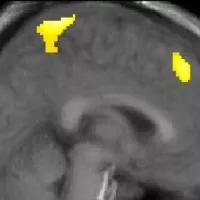Games Addiction could save Education?

His research focuses on better ways of helping students learn and he’s settled on the compulsive-aspects of computer games as an exceptionally good technique.
“It certainly didn’t arise from trying to find an application for interactive whiteboards.” says Howard-Jones. “It actually arose from the nucleus accumbens (the NAcc, a knot of neurons important in reward, pleasure, addiction, aggression and fear) and realising we’d missed a big trick in education, in that we have an overly simple idea of the relationship between reward and learning.”
Dopeamine accelerates the process that’s already taking place so, whatever stimulus is in front of you, you’ll remember it more. Therefore, action video games are like environmental Ritalin.
The background to this is dopamine. This chemical is present in the brain and the speed of uptake is proportional to, Howard-Jones explains, the amount you desire something. Dopamine helps orient your attention, but it also enhances synaptoplasticity – that is, how easy it is to learn something. The more you desire something, as measured by dopamine uptake, the more you remember.
Video games are hugely desirable – on a level with amphetamines. “You can see what’s happening with the help of our new neuro-imaging tech,” says Dr Howard-Jones “and it’s very clear that the reward is being very, very stimulated (by video games). What’s clear is that when the rewards system is stimulated your efficiency of learning improves.” And nothing stimulates the rewards system like video games.
“There’s a huge opportunity here for education. No-one’s going to worry about ‘over-compelling’ when we’re talking about somebody’s lesson.” He compares gaming to nuclear fission, saying that there’s a light side and a dark side – power and bombs, learning and addiction.

Howard-Jones does advocate using games in the classroom, but is aware that the mechanisms employed thus far haven’t always worked “Much of this learning game activity has been somewhat of a failure” he says. He thinks we need different sorts of games to turn this unique learning power into something useful and his research is focused on producing those sorts of games and testing them in classroom situations.
Small, bright screens are superbly good at blocking melatonin secretion, the chemical that makes you sleepy. So using technology, particularly games, near bedtime is going to disturb your sleep and prevent learning.
So Howard-Jones doesn’t just advocate using games in the classroom; his research also provides lessons for how teaching should change on the basis of what gaming has shown us about the chemical pathways in the brain. “That may explain why a lot of situations in gambling and gaming generate a lot of motivation.”







